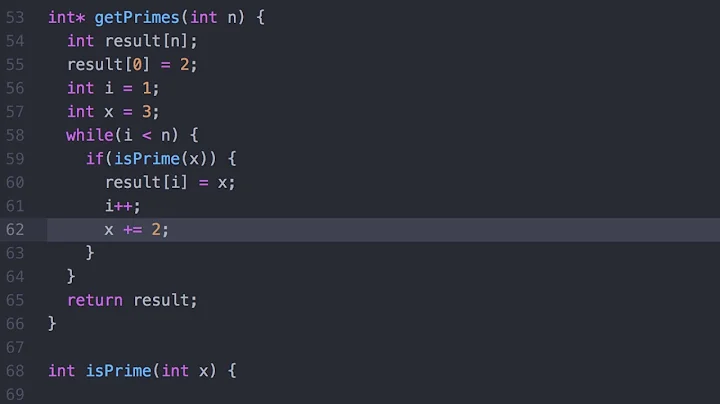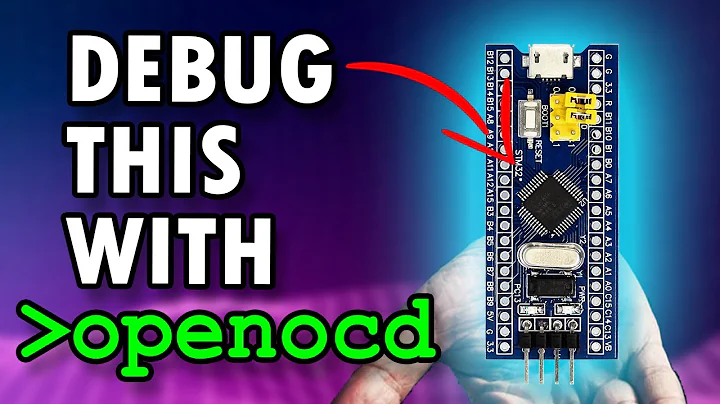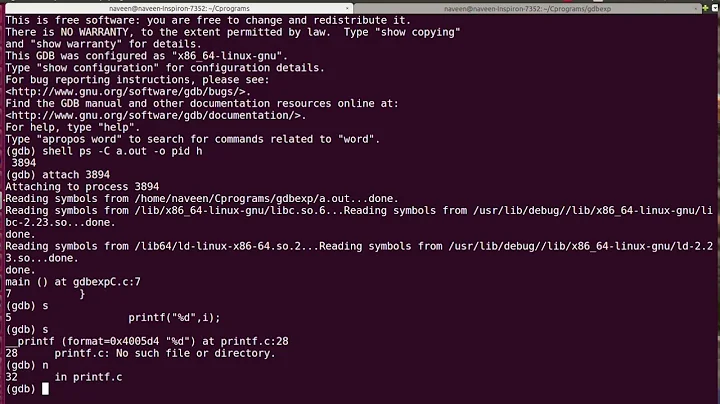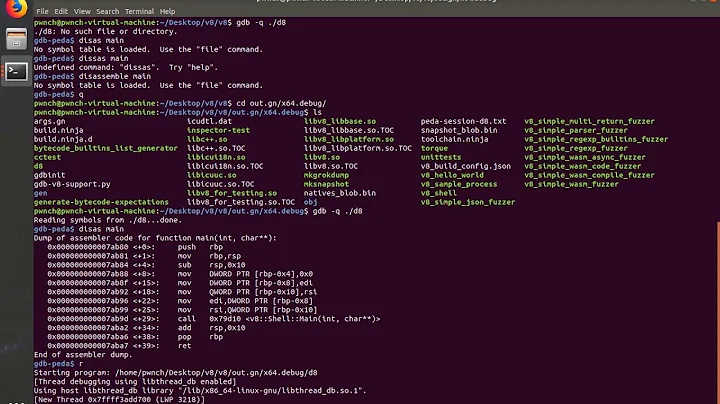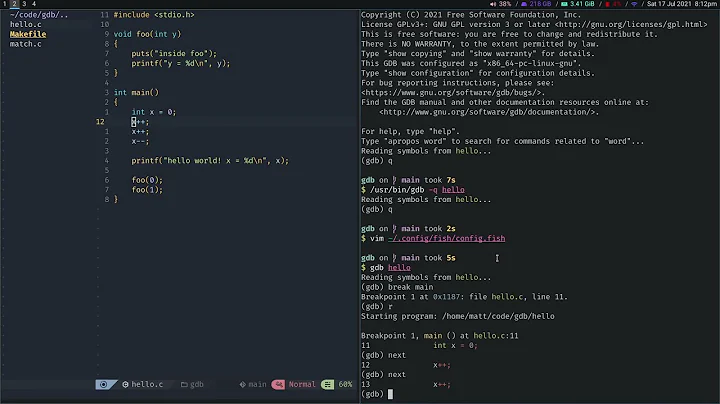Debugging a program that uses SIGINT with gdb
Solution 1
On UNIX-like systems, you can distinguish a tty-initiated SIGINT from one sent by kill by looking at the si_pid element in the siginfo struct. If the pid is 0, it came from a tty.
So you could do something like this:
catch signal SIGINT
commands
if $_siginfo._sifields._kill.si_pid == 0
print "Received SIGINT from tty"
else
printf "Received SIGINT from %d; continuing\n", $_siginfo._sifields._kill.si_pid
signal SIGINT
end
end
Solution 2
Readers who end up on this page (as I did) with a slightly different variation of this problem, would perhaps be more interested in this question:
Debugging a segmentation fault when I do ctrl c
... and its answer, which is:
-
send SIGINT from inside gdb itself:
(gdb) signal 2
(Normally I would post the link as a simple comment under the OP's question on this page, but since there are already 7 comments, comments are being hidden/buried.)
If you read all the details of the OP's question here, then it is obvious that my answer is not correct for OP.
However, my answer is correct for many situations that could be described by the same title: "Debugging a program that uses SIGINT with gdb"
Solution 3
This part of gdb is a bit tricky, both due to its history and also due to the various modes of operation it supports.
One might think that running gdb in a separate terminal and only using attach would help it do the right thing, but I don't think it is that easy.
One way forward might be to only use async execution when debugging, and then use a command to interrupt the inferior. Something like:
(gdb) attach 5555
... attaches
(gdb) continue &
... lots of stuff happens
(gdb) interrupt -a
Depending on your version of gdb you might need to set target-async for this to work.
Related videos on Youtube
Craig Ringer
I'm a PostgreSQL admin/developer, sysadmin, multi-language programmer (lately mostly Java and Java EE, previously C, C++, Python and good old bash) and general IT JOAT. I work for 2nd Quadrant, a global PostgreSQL consultancy. I'm one of the developers of BDR, the multi-master async replication solution for PostgreSQL, and do a lot of support as well. I maintain a technical blog at blog.ringerc.id.au. My PostgreSQL writing now appears on the 2nd quadrant blog. I'll work in most programming languages with varying degrees of competence, though I'll only reluctantly touch PHP or Perl code. I'm more interested in the libraries, tools, and the code that's built on top of the language. Most of my scrap code lives on https://github.com/ringerc . Most of my open source code is in the form of scattered patches across too many different bugzillas and JIRAs, rather than single new projects. I contribute patches to PostgreSQL and work on BDR. Most of my contribution is now non-code, in the form of: Detailed bug reporting with test cases User support for PostgreSQL on mailing lists and here on SE PostgreSQL patch review and beta testing Usability review Writing, editing and enhancing documentation, HOWTOs, etc Blogging in detail on topics likely to be useful to others. I've turned into a git fiend and no longer understand why anybody uses anything else. I'm also becoming increasingly obsessive about testing, particularly with the advent of Jenkins CI and related tools.
Updated on September 15, 2022Comments
-
Craig Ringer over 1 year
I frequently work with PostgreSQL for debugging, and it uses
SIGINTinternally for some of its inter-backend signalling.As a result when running certain backends under
gdbexecution tends to get interrupted a lot. One can use thesignalcommand to make sureSIGINTis passed to the program and that it is not captured bygdb... but thengdbdoesn't respond to control-C on the command line, since that sendsSIGINT.If you run:
handle SIGINT noprint nostop passgdbwill complainSIGINT is used by the debugger. Are you sure you want to change it? (y or n) yIs there any way to get gdb to use a different interrupt signal? Or any alternative method that'd let me have
gdbignoreSIGINT?(This isn't an issue for most PostgreSQL backend debugging, but it's a pain with background workers and autovacuum).
